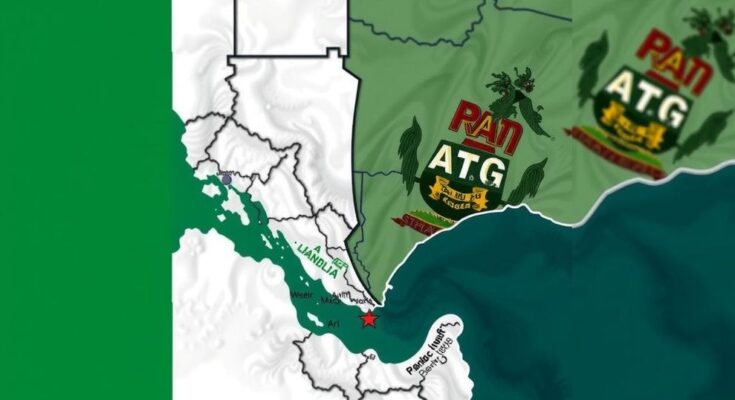The Pan-Niger Delta Forum asserts that the Niger Delta is the only region justifiably claiming marginalization in Nigeria. In response to the Arewa Consultative Forum’s comments on economic policies affecting the North, PANDEF emphasizes the lack of development in the Niger Delta despite its oil wealth, linking it to environmental degradation, inequitable resource distribution, and systemic injustices that require urgent redress.
The Pan-Niger Delta Forum (PANDEF) has asserted that the Niger Delta is the sole region in Nigeria entitled to legitimately claim marginalization and impoverishment. In response to the Arewa Consultative Forum’s claim that the economic policies of President Bola Tinubu’s administration were detrimental to the North, PANDEF’s National Spokesman, Chief Christopher Ominimini, underscored the paradox that while the Niger Delta’s oil sustains the national economy, the people of the region have not reaped benefits commensurate with their contributions.
Ominimini expressed deep concern that the sustained exploitation of Niger Delta oil has led to severe environmental degradation but has yielded little development for its inhabitants. He emphasized the disparity in resource management, stating that while Niger Delta oil wealth is channeled to the federal government, resources from other regions are utilized for local enrichment, which he termed as inequitable.
He highlighted that the gold in Northern Nigeria serves the interests of local communities and businesses, while the wealth generated by Niger Delta oil does not return to its people. Ominimini posed a critical question regarding the differential treatment of resources, stating, “Why do other regions mine and control their resources while the oil and gas from the Niger Delta are controlled by the Nigerian state?” This selective injustice undermines the nation’s progress, and he warned of potential backlash from such glaring inequalities.
He further connected the insurgency challenges in Northern Nigeria to the exploitation of solid minerals, underscoring a need for equitable resource management. PANDEF called upon the federal government to develop legal frameworks for artisanal miners to operate, highlighting that this could create employment, enhance technical knowledge, and curb corruption, particularly in light of Nigeria’s continual dependence on imported refined products.
Despite the Niger Delta’s vast oil reserves, Ominimini pointed out that the extraction process lacks transparency, with local communities unaware of the exact quantities produced. He criticized the disproportionate ownership of oil blocks and the absence of corporate social responsibility from both the federal government and international oil companies, alleging that “the Nigerian state is wicked to the Niger Delta Region.”
In his concluding remarks, Ominimini stressed the urgency of addressing the marginalized status of the Niger Delta. He lamented the indifference of federal authorities to the plight of the people and proclaimed that if systemic changes do not occur, divine intervention may be the only recourse. He concluded emphatically, asserting that the Niger Delta is the most impoverished region in Nigeria and that justice must be pursued without further delay.
The Niger Delta region of Nigeria, known for its rich oil reserves, has long been a focal point of economic activity, yet it remains one of the most impoverished areas in the country. The extraction of oil has resulted in severe environmental devastation and little socio-economic return for the local communities. The ongoing discourse regarding regional resource management effectiveness has highlighted disparities between how different regions control and benefit from their respective natural resources. PANDEF’s position reflects broader concerns about equity, justice, and development within Nigeria’s federal framework, particularly in relation to the Niger Delta’s socio-economic status.
In summary, PANDEF maintains that the Niger Delta region is the only area in Nigeria that could justly claim marginalization amidst contrasting narratives from other regions. The exploitation of the region’s oil resources has led to significant environmental damages and economic disenfranchisement, with moral and ethical issues tied to resource management. Urgent systemic reforms are necessary to rectify these injustices and ensure equitable benefits from Nigeria’s natural resources.
Original Source: punchng.com




